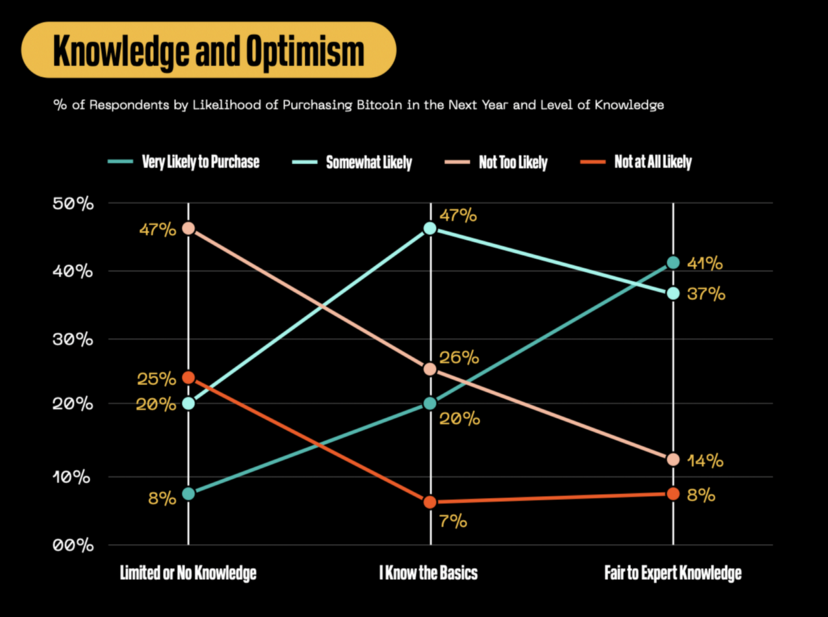
In early 2022, Block, Inc. partnered with Wakefield Research to survey 9,500 people in 14 countries across the Americas, EMEA, and APAC to better understand people’s knowledge and perceptions of bitcoin across different geographies, genders, and ages. Here are some of their findings.
The survey digs into three key themes:
- People See Promise in Bitcoin for a More Equitable Economy
- Education Is Key: Knowledge Feeds Optimism and Participation
- Bitcoin Stands Out Among Cryptocurrencies
Let’s dwell on the second part. According to the report, “the higher people rate their level of knowledge, the more optimistic they are about bitcoin’s future”. Among people who know the basics 67% are optimistic compared to only 28% of those who have limited or no knowledge. “Not knowing enough about Bitcoin” is the main reason for not buying it (51%). However, nearly a quarter of those who rate their knowledge of cryptocurrencies as “fair to expert” remain sceptical of bitcoin’s future. For them, the main concerns are “too much price volatility” and “an uncertain regulatory outlook”. People also tend to be more optimistic when they have some “examples” in front of them. Non-bitcoin owners who personally know someone who owns bitcoin, 73% say they are likely to buy bitcoin in the next 12 months, compared to just 37% of those who do not know someone who already owns it.
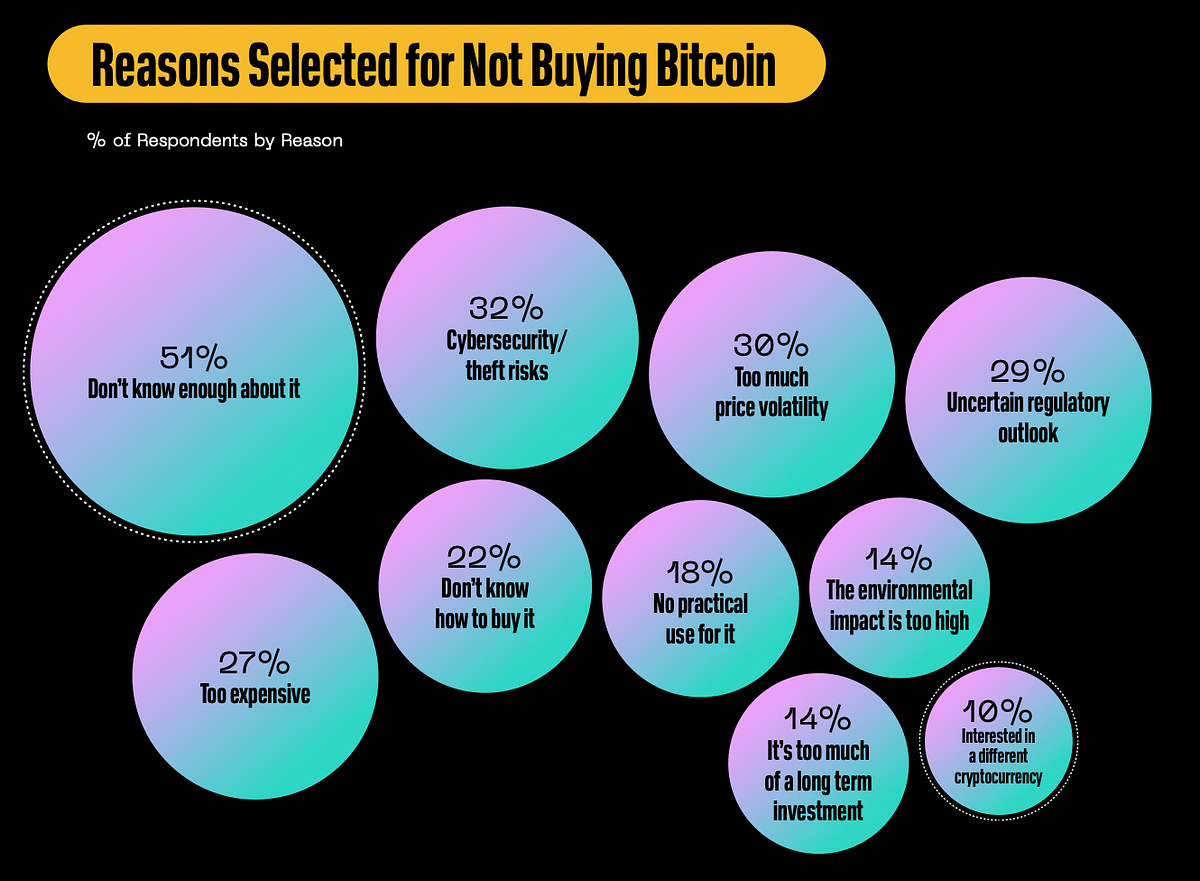
There is almost no correlation between gender, age and knowledge level. Men are slightly more self-assured, especially in America but let’s remember that it is the level of claimed knowledge.
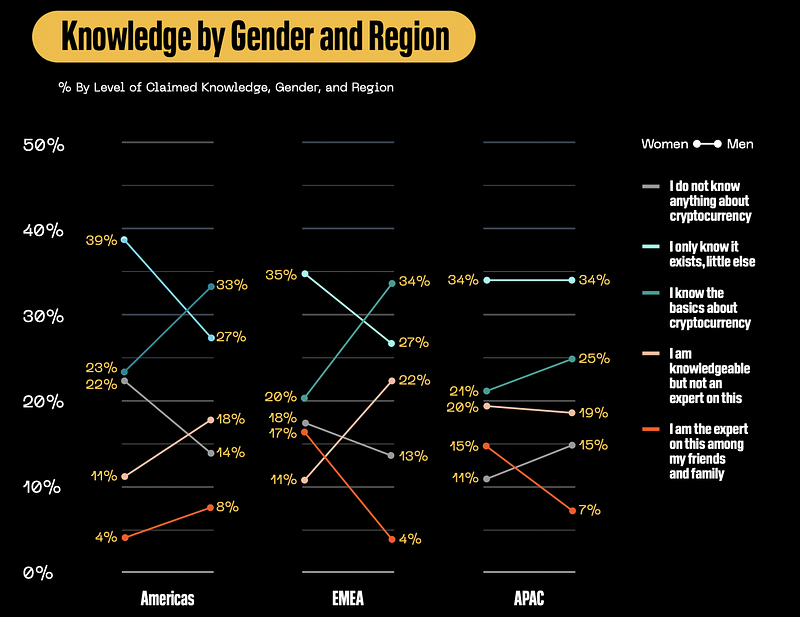
By the way, last year a research conducted by Pew Research Center showed more gender- and age-correlated results. Although it studied not only people’s knowledge and expectations, but their real actions with crypto: investments, purchases etc. Perhaps if men and women both say that they are likely to buy BTC, mostly men eventually do this?
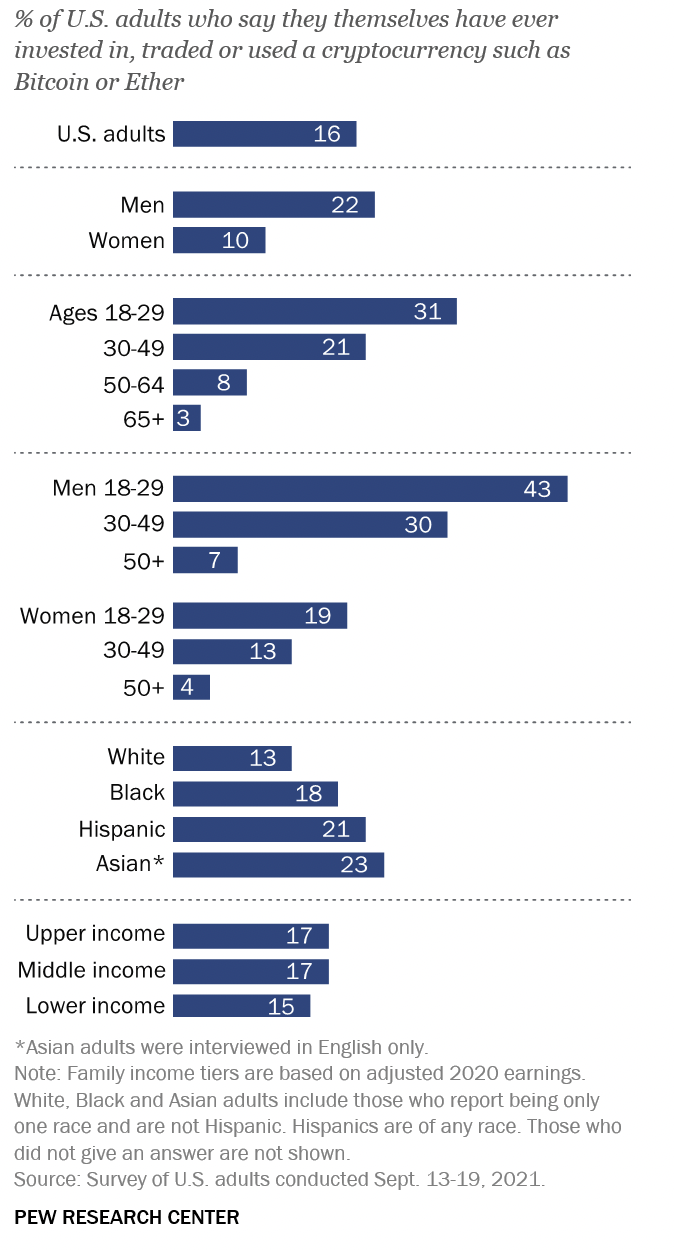
As for geography, the most optimistic countries are Nigeria, India, Vietnam, Argentina and South Africa. Japanese people are the most sceptical and Chinese the most neutral. Additionally, higher-income people are more optimistic than lower-income people, and this is true in every region (the smallest gap is in America).
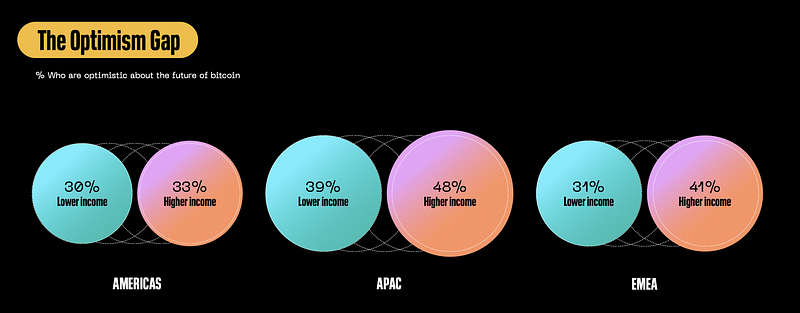
To sum up, someone’s self-assessed understanding of cryptocurrencies has the strongest influence on whether they’re likely to buy bitcoin or not. Interesting fact: when asked to select the correct definition of cryptocurrencies, respondents who identify as having fair to expert levels of knowledge choose the correct answer at similar rates as those who say they don’t know a lot about cryptocurrencies. Maybe we should all check if we really know enough about BTC and then re-evaluate our positions?
